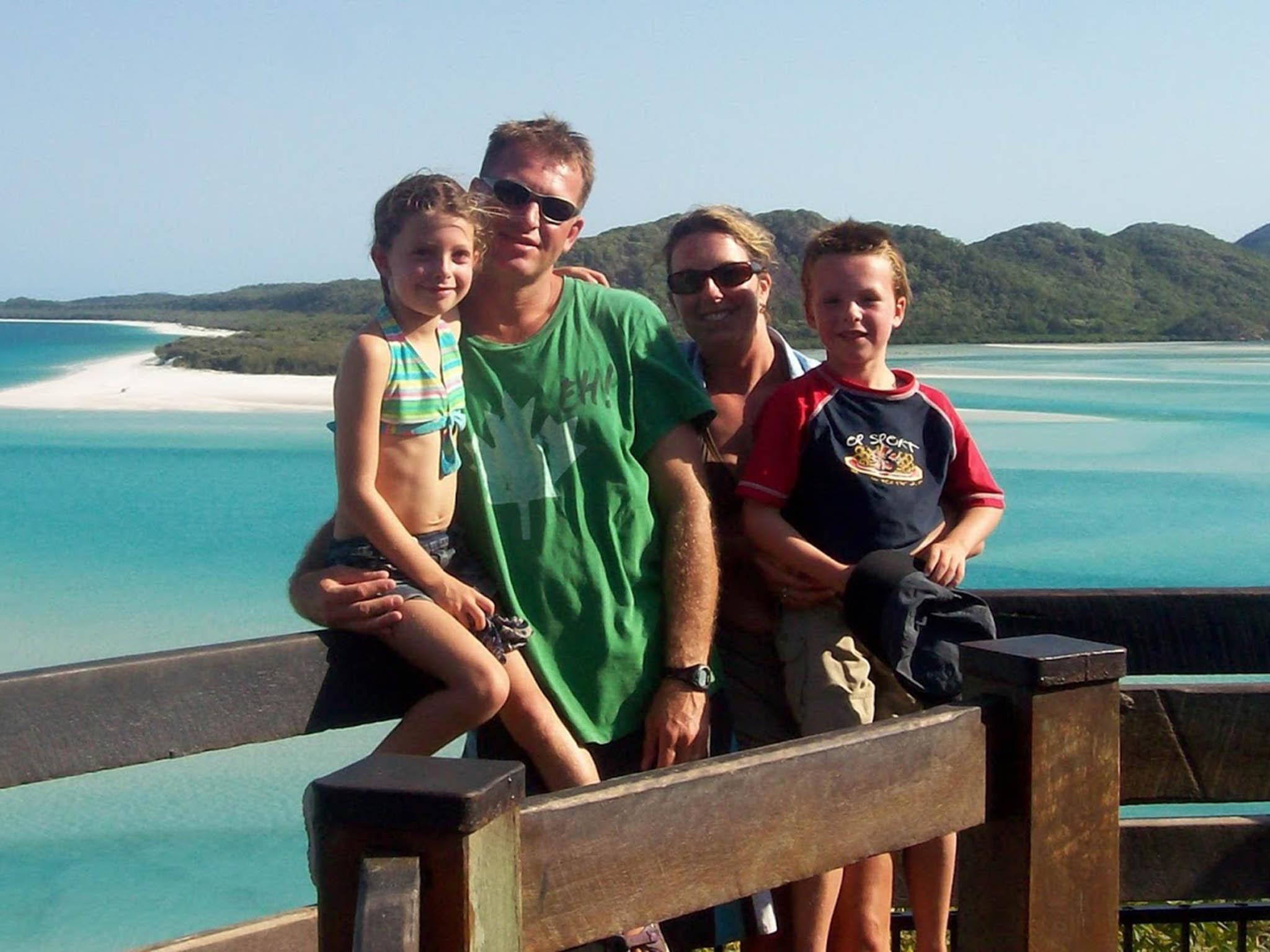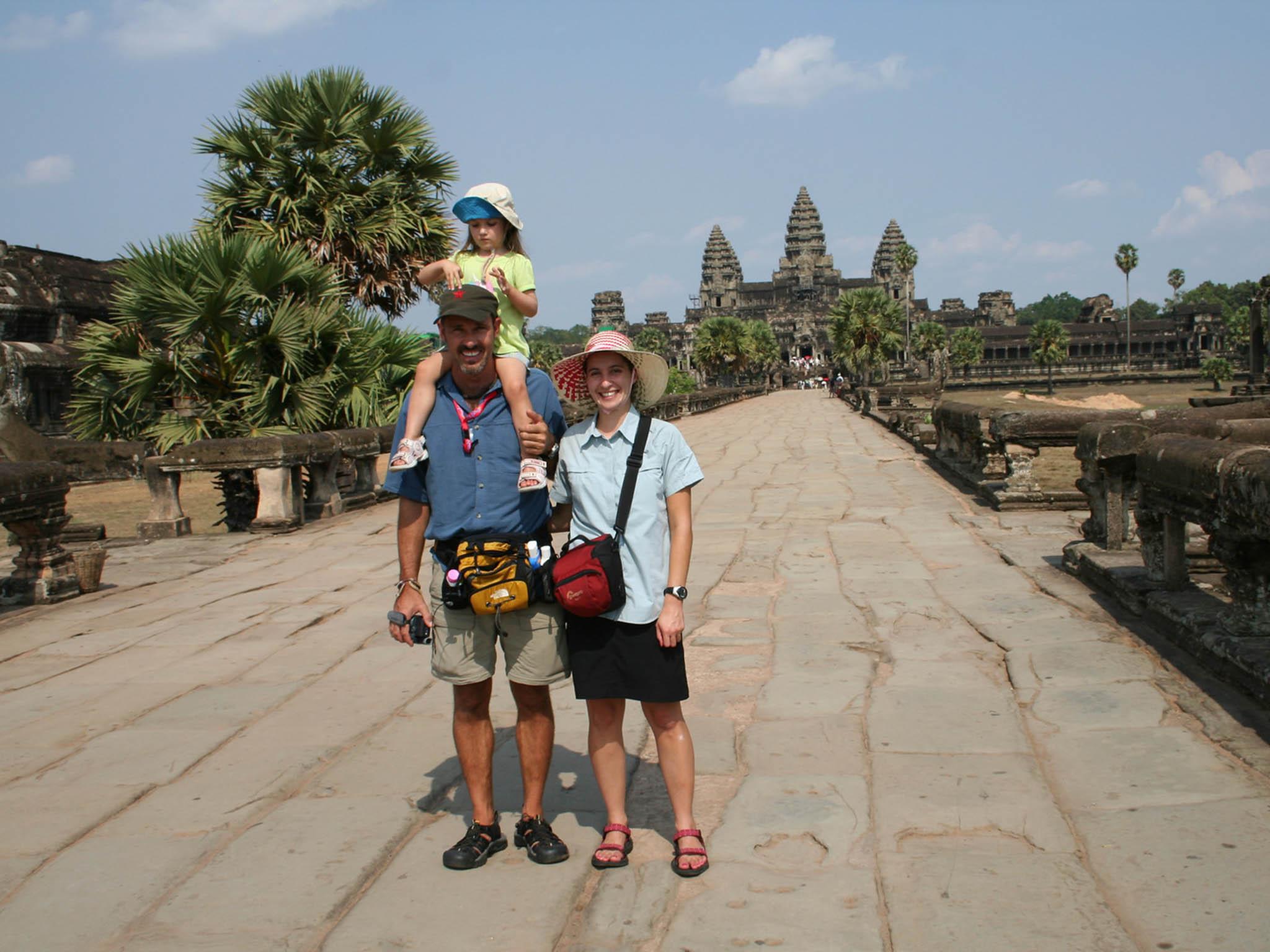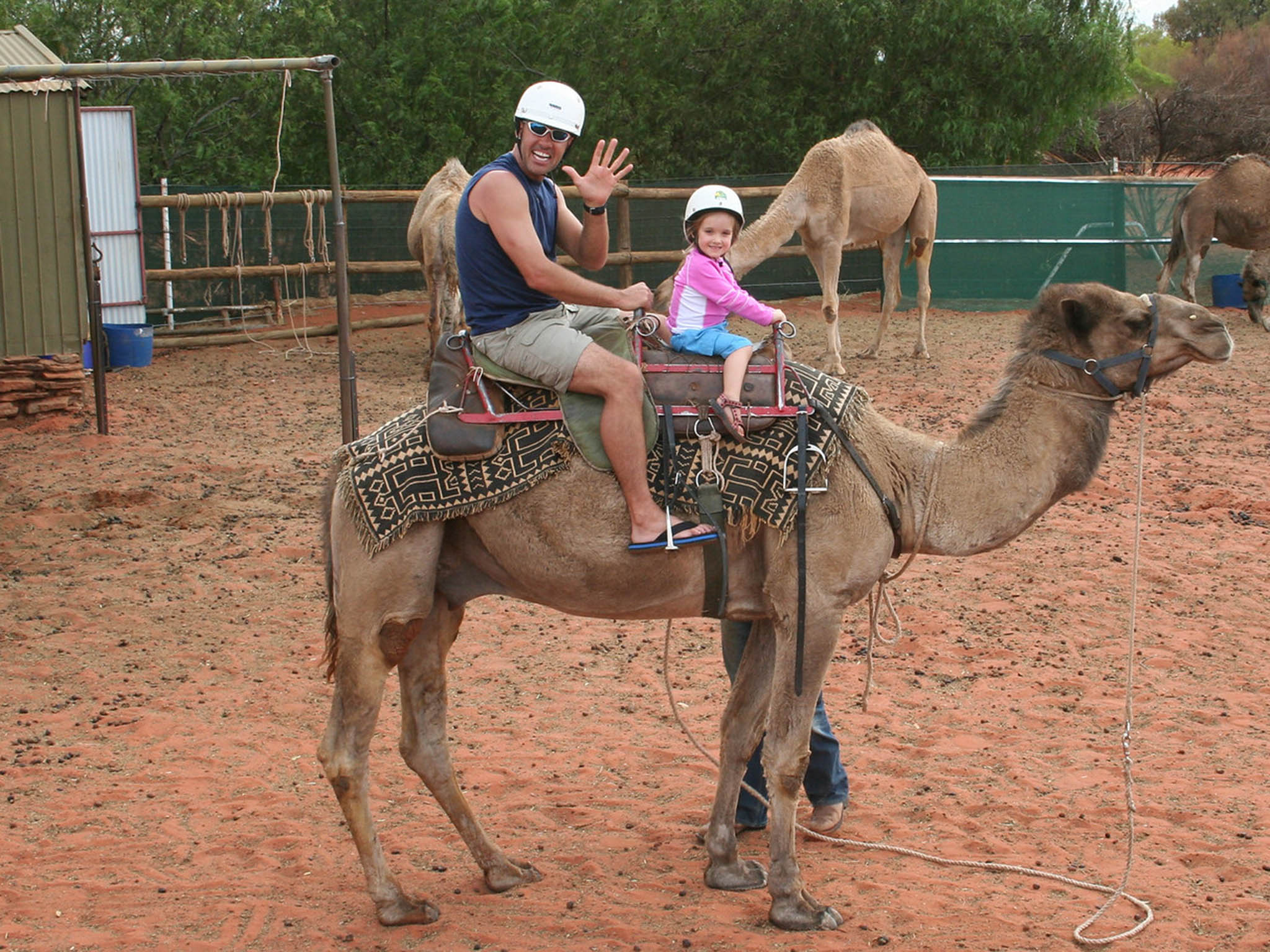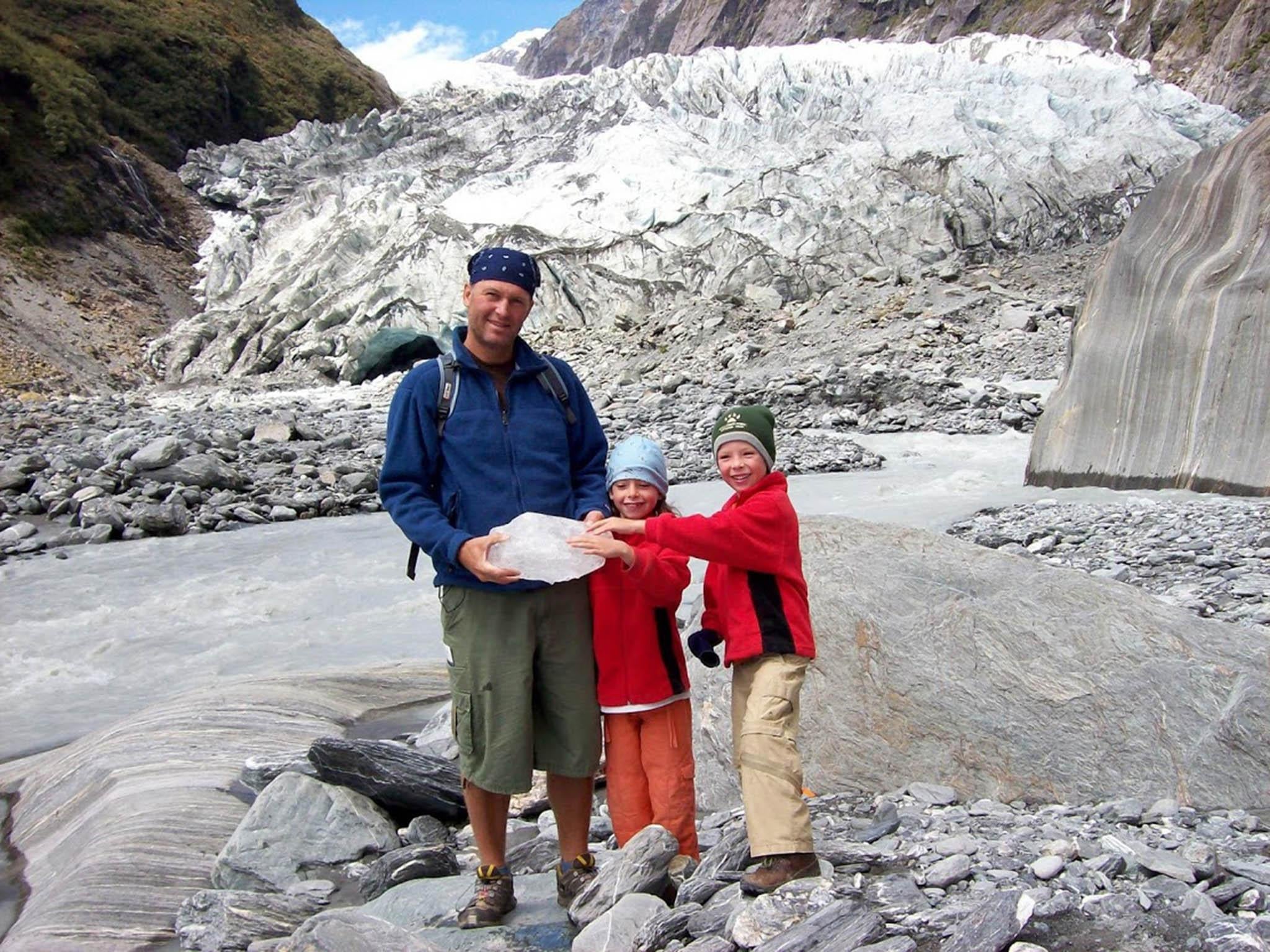Bye suburbia, hello world: Meet the backpack families
Just as students take gap years, families are increasingly off on jaunts around the world to escape the rat race – some decide not to come back

Your support helps us to tell the story
From reproductive rights to climate change to Big Tech, The Independent is on the ground when the story is developing. Whether it's investigating the financials of Elon Musk's pro-Trump PAC or producing our latest documentary, 'The A Word', which shines a light on the American women fighting for reproductive rights, we know how important it is to parse out the facts from the messaging.
At such a critical moment in US history, we need reporters on the ground. Your donation allows us to keep sending journalists to speak to both sides of the story.
The Independent is trusted by Americans across the entire political spectrum. And unlike many other quality news outlets, we choose not to lock Americans out of our reporting and analysis with paywalls. We believe quality journalism should be available to everyone, paid for by those who can afford it.
Your support makes all the difference.Ever feel like work is getting on top of you or that you hardly have time to spend with your kids, let alone yourself? Ever feel like you won the dream – two cars, a mortgage and a flatscreen TV – but the dream hasn’t quite turned out how you expected? Ever wondered what you could do about it?
How about selling everything you possess and taking the whole family backpacking around the world? It sounds farfetched, even a tad irresponsible but it’s what more and more families fed up with the rat race are doing.
The Bournivals
“We felt like we were dying a slow death in suburbia,” says Tamara Bournival, a wife and mother of two from Belleville in Ontario, Canada. Tamara owned her own pharmacy and husband Claude was a computer network administrator. The routine of school runs and work left them feeling they weren’t getting what they wanted from their lives. “We were both busy professionals and felt like our nanny was raising our kids,” says Bournival. “One night I came home and Claude was reading a travel magazine and looked at me and said: ‘What would you say if we sold everything and took the kids on a trip around the world?’ Six months later we were on the road.”
The couple sold their house and Bournival’s business and bought a camper van to tour Canada for six weeks, saying goodbye to relatives and friends before jetting off on a year-long round-the-world backpacking trip. Their travels took them to Hawaii, the South Pacific, South East Asia, India and Nepal, Europe and Africa. They sailed the Great Barrier Reef and the coast of Greece, climbed Kilimanjaro, came within touching distance of a sleeping rhino and had their flip-flops melt on a bus ride in the searing heat of the Sinai Peninsula.
Apart from the odd hairy moment and the usual challenges associated with backpacking, the Bournivals also had to contend with raising two young children Alexa and Simon, aged five and six. Not to mention educating them. Their neighbour, a primary school teacher imparted some techniques for teaching on the road, such as playing card games to learn maths. But the trip itself turned out to provide all the educational materials they could need. The children kept journals where they drew pictures and wrote stories about the places they had visited. They learned lots about geography and money. “We taught them how to barter and exchange currency,” says Bournival. “One time in Africa Alexa set up a little souvenir shop in the place we were living and we would buy stuff from her. It’s a great way for kids to learn without even realising they’re learning.”

Tamara and Grant
Of course educating your child on the road becomes less hassle if you take them pre-school, which is what another Tamara – Tamara Cassels – and Grant Weatherill did with their three-year-old, Jessica. Living in Calgary, Canada, working 60-hour weeks as a project manager and studying for an MBA, Tamara decided enough was enough one day while doing the housework. “One day I was dusting the nice leather couch that no one ever sat on and I thought, ‘this is ridiculous. I don’t want this couch, I don’t need it. I’m not happy with the lifestyle I’m living’. I hated leaving my daughter every day. I got to spend maybe two hours a day with my kid. Something had to change.”

The Weatherills sold their house and vehicles and set off on a year-and-a-half round-the-world trip starting in Australia and taking in Asia, Europe and Central America. Cassels, whose first plan was to go travelling when Jessica turned 12. She was surprised to find that three was in fact the perfect age – old enough to do some things on her own, young enough and small enough to put in a stroller and be entertained by anything. “We have so many pictures of her with this beautiful, amazing wonder of the world behind her like Angkor Wat,” says Cassels, “and she has a stick and she’s poking some ants.
But that’s okay. You have to realise your child is having her own experience and not yours.” Cassels was surprised how few challenges travelling with a young child threw up (except perhaps-potty training in a camper van in the outback). In fact having a toddler opened up experiences and interactions they otherwise wouldn’t have had, especially when it came to integrating with communities. “She opened doors everywhere we went”, says Cassels, “especially in South East Asia – I realised if I wasn’t watching her, there were 15 other mums that were and would not hesitate to step in and help. People fed my child in the street if she looked hungry. People just treated her like she was their own.”

That’s not to say there weren’t challenges. For the Weatherills, as well as the Bournivals, one of the biggest was living in each other’s pockets. “When you spend 24/7 with your loved ones for an entire year, you really have to learn to tolerate each other’s idiosyncrasies”, says Tamara Bournival, “and you have to learn some patience.” She recounts an experience during an eight-hour drive through the outback when they had to pull over for half an hour just to take a break from each other. She also points out that her husband only had one night out together in the entire year. And they had to get particularly creative to manufacture some mummy-and-daddy alone time. But the biggest challenge was also the biggest highlight for both families – getting to spend some much-needed time together out of the rat race.
The Longs
For another family it was an experience they enjoyed so much they decided to keep it going indefinitely. Alyson and James Long are an English couple moved to Port Douglas in Queensland, Australia with their two children aged seven and five. Alyson Long had been educating their eldest at home for two years and decided that switching home-schooling for world-schooling was the way forward. “We just thought it would be a much better idea to change their environment,” she says. “Of course they learn so much from their environment and we were just in one small town in northern Australia. We wanted them to experience everything and show them everything there is to learn.”
They rented out their house and estimated they had enough savings to travel for two years. After one year the money had run out but their taste for backpacking hadn’t. Long had started a blog about their travels and decided to try and make it into a permanent money-making operation. “We had to find a way to make it work so I started working really hard and I just grew it and grew it and it got bigger and bigger.” That was four years ago. Now Long’s blog World Travel Family gets up to 100,000 hits a month and continues to help fund a backpacking trip of five years and counting.
The benefits of world schooling are at the heart of everything the family do – they have just spent a month in Egypt because one of their children is fascinated by mythology. “We take him to the places that interest him so he can increase the depth of his knowledge, see it at source,” says Long. “If you want to learn about the Mayans or Incans, you take them to Central America. You don’t need to learn something from a book when you can learn it standing there looking at it.” Once open to the possibilities of learning through travel, almost any experience can become a learning one, says Long. In Nepal, after the 2015 earthquake, they learned about the environmental, social and infrastructure damage of such events, not to mention the geology involved. “Can you think of a better place to study plate tectonics?” she says. “We saw that the seabed is now at the top of the Himalayas. We saw the shells and fossils up there.”
The Longs have no intention of letting up soon. In fact they are looking to sell their house in Australia and commit even further to a nomadic lifestyle. Alyson says she doesn’t miss the creature comforts of a typical western lifestyle, except perhaps the occasional craving for cheese and Dr Who. They have had the odd hairy moment, such as recently in Egypt when they were nearly hit by a truck whose brakes had failed. But generally Long says she feels safer on the road than she would at home in London where she grew up.
Overall, like the other two families, Long stresses how surprisingly easy and safe the whole thing feels. Her advice to anyone thinking of doing the same thing is simple: don’t be afraid. “There really is nothing to be afraid of. It’s not difficult. People are good. People are kind. There’s nothing really scary out there. It’s just a really lovely experience.”
Join our commenting forum
Join thought-provoking conversations, follow other Independent readers and see their replies
Comments